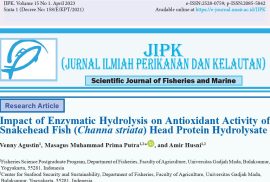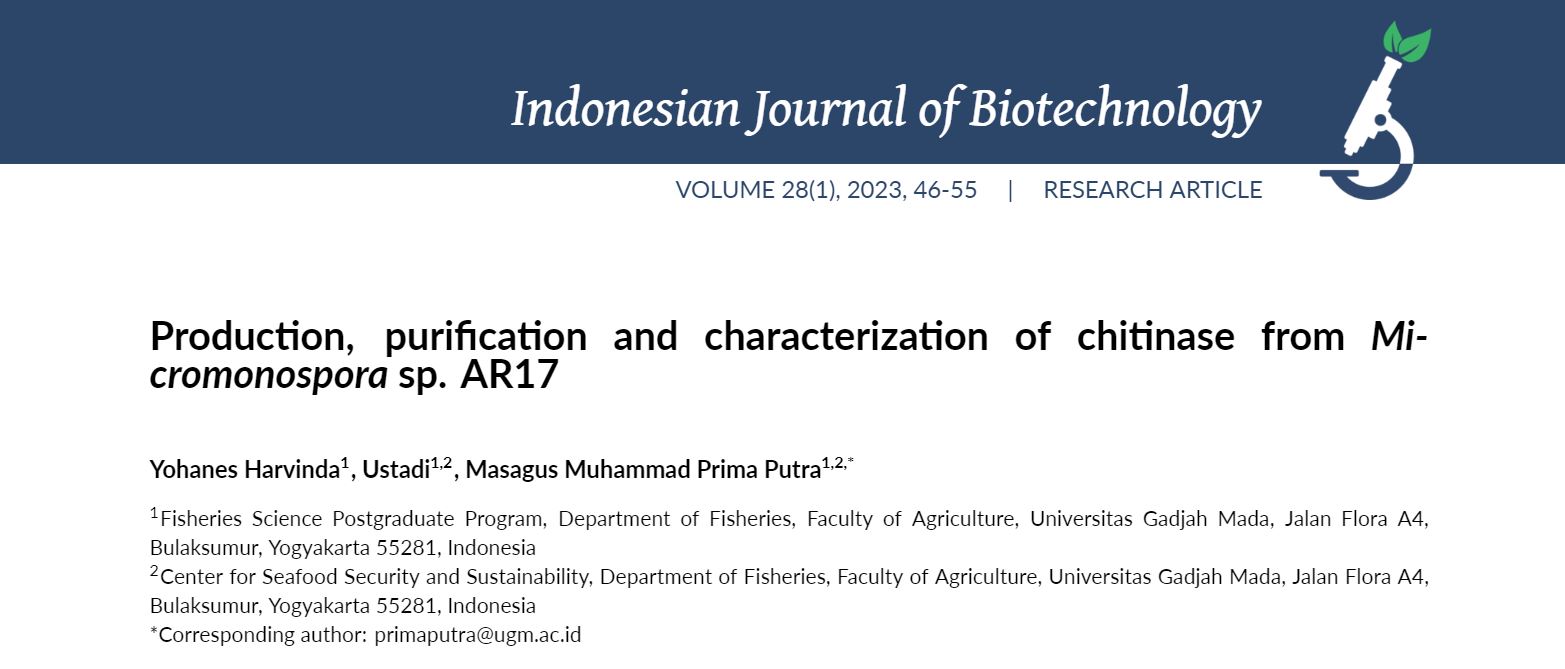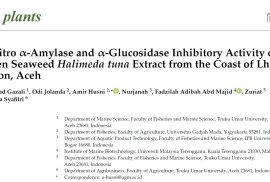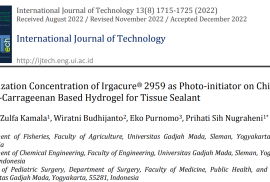Masagus Muhammad Prima Putra, Muhammad Yaafi, Achmad Hanif Mardinsyah, Indun Dewi Puspita
Fish fermented products are popular products among coastal community in Indonesia. Generally, the products are naturally produced with the addition of salt without any selection of the bacterial community. This situation resulted on the variety of the final products quality. One strategy to overcome this problem is by adding a potential lactic acid (LAB), a good bacterium, in the fermentation process. We have conducted a screening of LAB from several local Indonesian fermented fish products namely Pakasam and Wadi. The first screening collected 28 isolates which characterized as LAB from Gram stain and catalase activity. The second screening was done to screen a LAB which possess antibacterial activity against common contaminant bacteria namely Staphylococcus aureus ATCC 6538, Salmonella sp. 230C, Escherichia coli 563 B, Citrobacter freundii CK1, Klebsiella sp. CK2, and Morganella morganii TK7. Among those 28 isolates, we selected one isolate with the highest antibacterial activity and successfully identified molecularly as Weisella sp. GMP 12. Further isolation of antibacterial substances targeted bacteriocin showed a good inhibition to Staphylococcus aureus ATCC 6538 with 3694 AU (Activity Unit), Salmonella sp. 230C with 2254 AU, Citrobacter freundii CK1 with 3166 AU but not to E. coli 563 B. This finding concluded that Weisella sp. GMP 12 isolated from Pakasam could be a potential candidate as a starter in the production of fermented fish products to enhance its quality.











